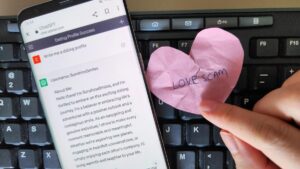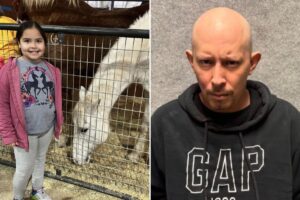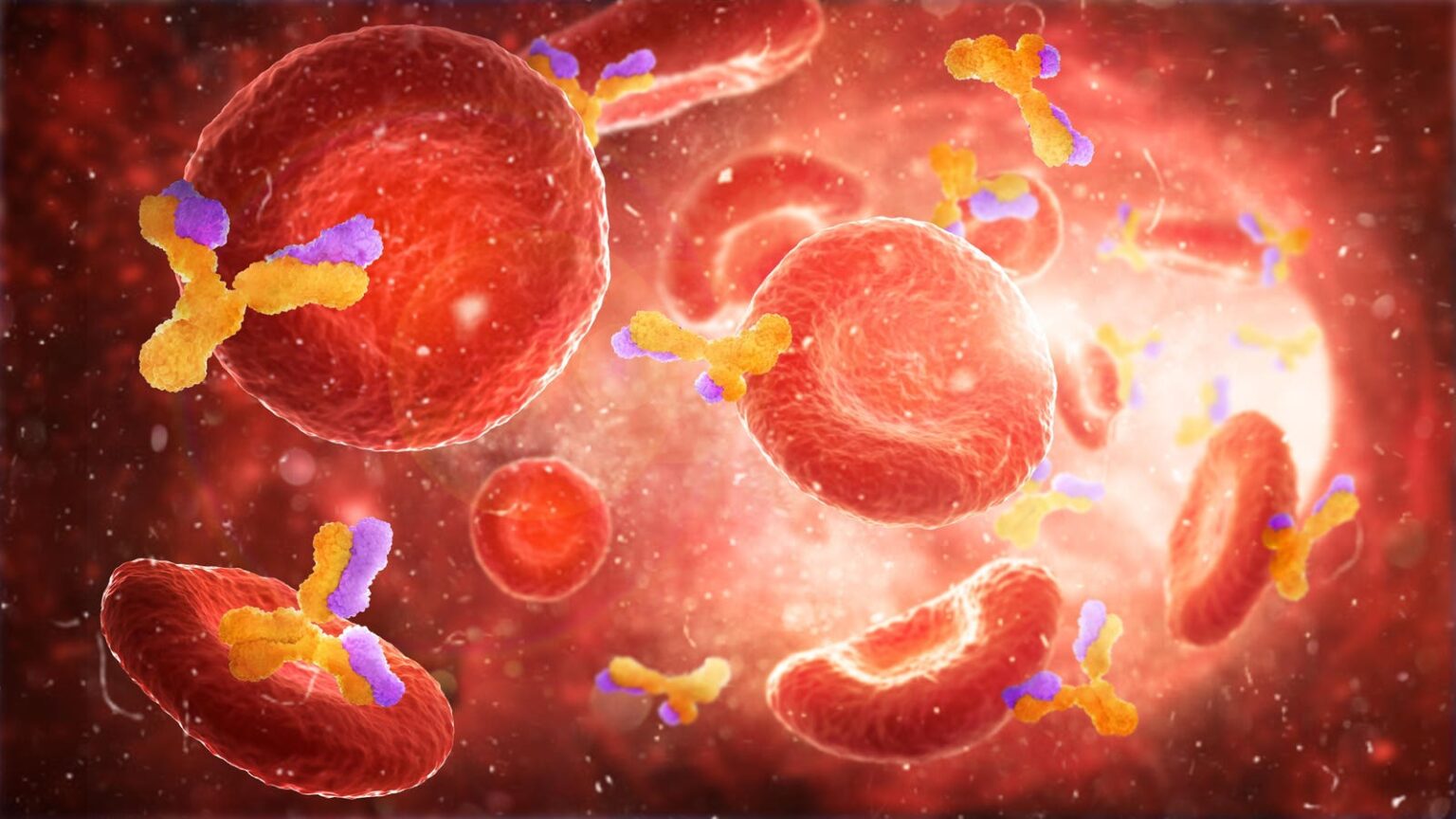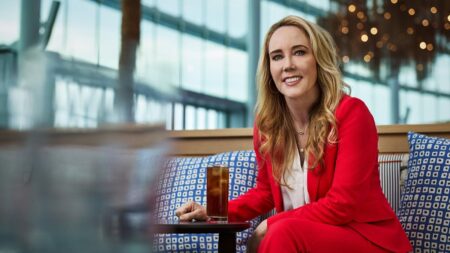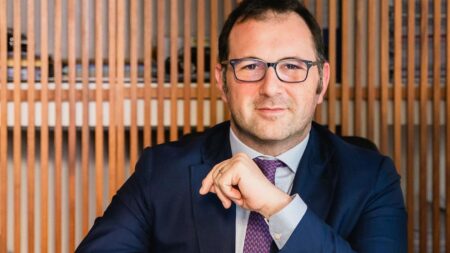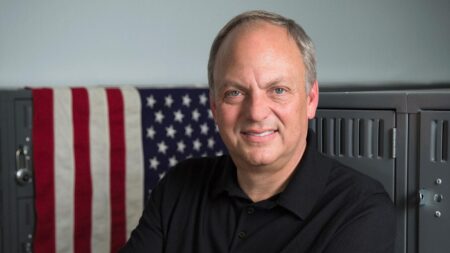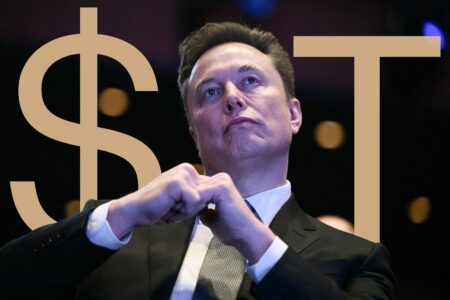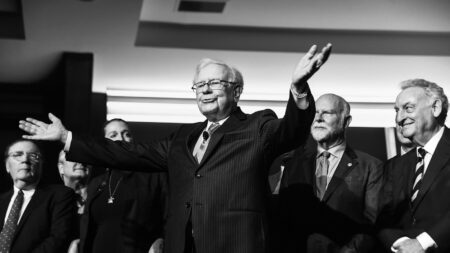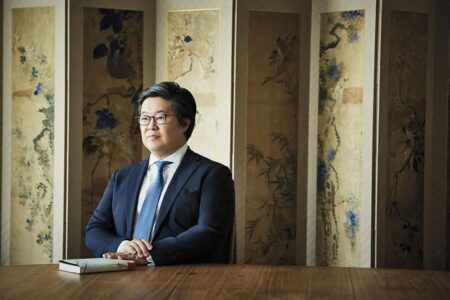A $2.6 billion licensing and joint research deal with Eli Lilly boosted shares of South Korean biotech company ABL Bio by about 80% over the past week. The stock surge has made Lee Sang-hoon, the company’s founder and CEO, South Korea’s newest billionaire.
Lee, a 62-year-old U.S. citizen, is the largest shareholder of ABL Bio with a 23% stake in his own name worth $1.5 billion, after accounting for pledged shares. (His wife, Yoo Ju-hee, and son, Lee Jin-young, also own tiny stakes in the company.)
Based in Seoul’s upscale Gangnam neighborhood, ABL Bio has a portfolio of bispecific antibodies, which target two antigens simultaneously to improve treatment outcomes for cancer and neurodegenerative diseases such as Alzheimer’s and Parkinson’s. The deal with Eli Lilly, which was announced last week, was for licensing and jointly developing new therapies using ABL Bio’s Grabody-B, a blood-brain barrier-penetrating bispecific antibody technology. Grabody-B transports medicines across the blood-brain barrier by using the same pathway the body uses to carry essential nutrients into the brain.
Under the deal, ABL Bio will receive $40 million upfront and potential milestone payments of as much as $2.56 billion. ABL Bio signed a similar deal for Grabody-B CK with U.K. pharma giant GSK in April worth 2.1 billion pounds ($2.8 billion). In 2022, ABL Bio had signed a $1.1 billion technology transfer and joint development deal with France’s Sanofi for its ABL301 bispecific antibody candidate targeting Parkinson’s. “Internally we had confidence in our technology,” said Lee in a television interview after inking the Sanofi tie-up.
ABL Bio’s first-half revenue was up nearly five-fold year-on-year to 77.9 billion won ($53 million), while the bottomline swung to a profit of 11.7 billion won from a loss of 25.6 billion won a year ago. All of its revenue came from technology transfer deals.
The company was named a top pick by Shinhan Securities researcher Minyong Eom in May. “We recommend focusing on companies that align with the development trends of global pharmaceutical firms and possess platform technologies that enable unique business models,” Eom said in his report, adding that ABL Bio is a “developer of the only blood-brain-barrier (BBB) penetrating platform that is nearing clinical validation.”
Earlier this month, ABL Bio led a $75 million Series A funding round in Palo Alto-based NEOK Bio, a startup specializing in antibody-drug conjugates—a targeted cancer treatment using monoclonal antibodies. “Our investment in the formation of NEOK Bio underscores our commitment to deliver transformative therapeutic innovation to the dynamic and growing ADC landscape,” said Lee, who is a board member at NEOK Bio, in a statement announcing the Series A financing.
Lee founded ABL Bio in 2016 and listed it on Korea’s technology-rich Kosdaq stock exchange two years later. Before starting ABL Bio, Lee was head of the bio division at Hanwha Chemical, the petrochemicals arm of Korean conglomerate Hanwha Group, now part of Hanwha Solutions. Previously, he was chief researcher at U.S. cancer drug maker Exelixis and biologics company Genentech (its listing on the New York Stock Exchange in 1980 was the world’s first major biotech IPO). Lee holds a Ph.D. in molecular, cellular and developmental biology from Ohio State University and was a postdoc at Harvard Medical School and University of California San Francisco. He earned his master’s and bachelor’s degrees in biology from Seoul National University.
Lee joins a pantheon of South Korean biotech billionaires, including Seo Jung-jin ($7.6 billion) of biosimilars giant Celltrion; Park Soon-jae ($3.9 billion) of Alteogen; Chung Yong-ji ($1.5 billion) of anti-wrinkle shot-maker Caregen; and Jung Sang-soo ($1.1 billion) of PharmaResearch, which makes skin booster injections derived from salmon sperm cells.
Read the full article here


